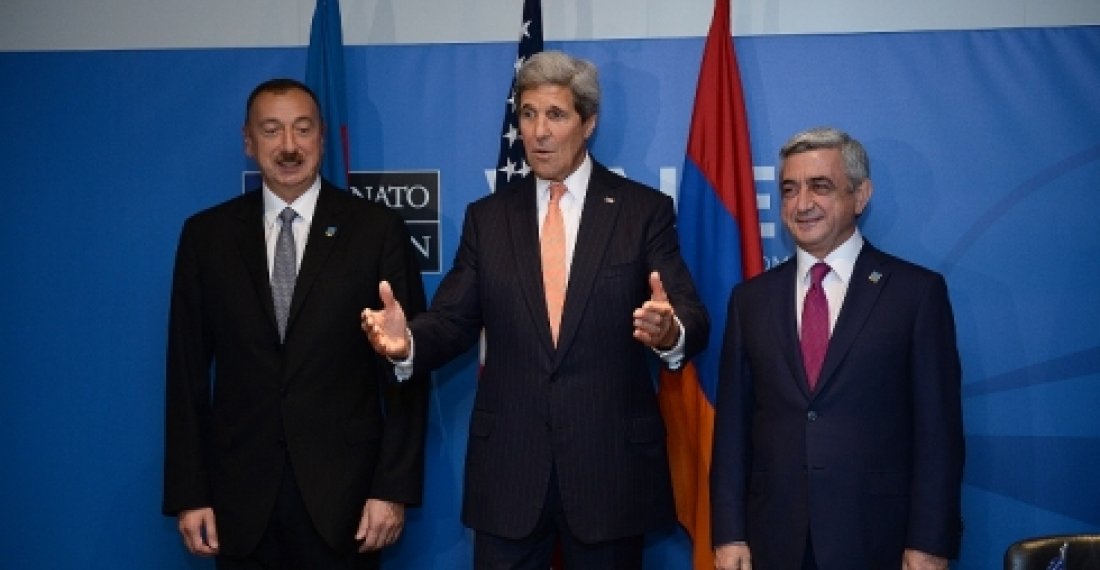United States Secretary of State, John Kerry, on Thursday met with the President of Armenia Serzh Sargsian and the President of Azerbaijan Ilham Aliyev at the NATO Summit in Newport, Wales to discuss efforts to resolve the conflict in Nagorno-Karabakh.
He expressed his strong concern for the recent violence along the Line of Contact, marking the deadliest period in the conflict since the 1994 ceasefire took effect. The United States believes that the cessation of hostilities and the normalization of relations between Armenia and Azerbaijan will bring peace and prosperity to the peoples of both countries, and will contribute to stability in the South Caucasus. With these goals in mind, Secretary Kerry urged the Presidents to strictly respect the ceasefire and take additional steps to prepare their public for peace.
Kerry encouraged the Presidents to work with the OSCE Minsk Group Co-Chairs, who are committed to helping the sides reach a peaceful and lasting settlement. He also applauded the Presidents for agreeing to continue their dialogue on key elements of a settlement.
He called on the sides to enter into a more formal negotiation process under the auspices of the Minsk Group Co-Chairs as proposed by the Swiss Chairman-in-Office at the OSCE. A sustained process is necessary to increase trust between the sides and build momentum towards a lasting peace that the people of the region deserve.
In Newport, President Aliev and President Sargsyan are also having a number of bilateral meetings with other European leaders gathered for the NATO summit and will attend meetings between the NATO allies and partner countries.
source: commonspace.eu (with US State Department Press Office)
photo: US Secretary of State Kerry with President Aliev of Azerbaijan and President Sargsyan of Armenia at their meeting in Newport on Thursday, 4 September 2014.







